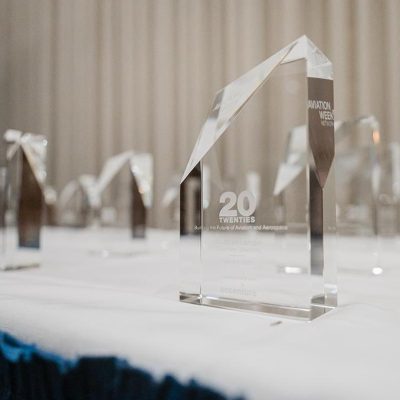
ARCLab announces winners of the 2025 ARCLab Prize for AI Innovation in Space
AeroAstro’s ARCLAB has announced the winners of the 2025 MIT ARCLab Prize for AI Innovation in Space, a global challenge that invited teams to advance forecasting of thermospheric density, a critical factor in predicting satellite drag in Low Earth Orbit (LEO).
The challenge responds to the growing need for efficient and accurate orbit prediction and satellite tracking in the increasingly crowded near-Earth environment. Competing teams were tasked with developing AI algorithms for forecasting space weather-driven atmospheric density changes, using historical solar and geomagnetic indices, interplanetary magnetic field measurements, solar wind parameters, and in situ spacecraft accelerometer data.
This year’s challenge drew 159 participants and 973 code submissions. Phase 1 weighted performance scores and additional resources, including the competition dataset, baseline model, and devkit documentation, are available on the public leaderboard.
The top 3 winners of the competition are invited to work together with ARCLab to prepare a single journal paper outlining their work and methodologies.
Scores reflect a weighted sum of normalized algorithm performance and technical report feedback.
First Prize: Rasyid Ridha – Bimasakti
With a winning score of 0.925, Bimasakti will receive $2,000. Reviewers praised the work as “quite novel, incorporating several new ideas or techniques. It stands out, pushing boundaries and capturing attention. The synthesis of different concepts leads to promising results.”
Second Prize: Binh Tran, Chris Yeung, and Matthew Sulkosky – Millennial-IUP
The Millennial-IUP team took second place for the second year in a row with a score of 0.879, earning a $1,200 prize. Reviewers took special note of the report’s reproducibility, saying that the work provided “exceptionally clear descriptions and explanations for all aspects of the model’s reproducibility. A diligent reader can precisely replicate the reported results.”
Third Prize: Cihat Emre Çeliker – cteceliker
Team cteceliker took third place with a score of 0.786, earning an $800 prize. One reviewer praised the report as having “exceptional insights, offering profound conclusions, implications, and lessons learned. It transcends immediate study, inspiring future research and decision-making.”
Runners up:
- SAADAT
- mattmotoki
- Digantara
- Is_Fr
- JMU-ARIES
The MIT ARCLab Prize for AI Innovation in Space is to encourage technologists and enthusiasts to bring innovation and new skills sets to well-established challenges in aerospace.
Acknowledgement
Research was sponsored by the Department of the Air Force Artificial Intelligence Accelerator and was accomplished under Cooperative Agreement Number FA8750-19-2-1000. The views and conclusions contained in this document are those of the authors and should not be interpreted as representing the official policies, either expressed or implied, of the Department of the Air Force or the U.S. Government. The U.S. Government is authorized to reproduce and distribute reprints for Government purposes notwithstanding any copyright notation herein.

